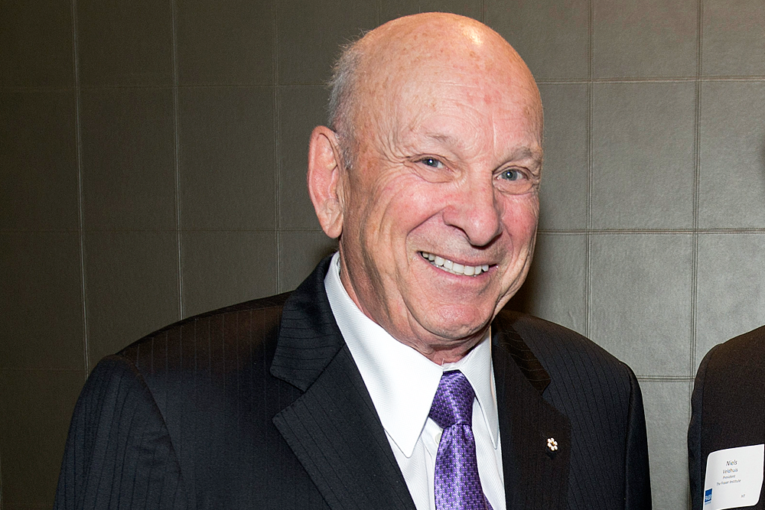
Canadian billionaire Seymour Schulich made a big bet on Pengrowth Energy Corp. that appears poised to end badly after the oil and gas company’s stock plunged Friday following the announcement of what amounts to a fire sale to Cona Resources.
Schulich has been buying Pengrowth stock since going “all in” on the company in the fall of 2017, betting that oil and gas prices were on the rise. At the time, in an interview with the Financial Post, he lamented that he was unable to buy additional shares when they were trading at $1.19 without making a formal tender offer.
On May 15 of this year, when the stock was trading around 56 cents, Schulich issued a news release through his investment company Nevada Capital Corp. Ltd. saying he had increased his ownership in the energy company to 165 million shares. Bloomberg data on stock holdings lists Nevada as Pengrowth’s largest shareholder with a 28.5 per cent stake.
Under terms of the sale transaction announced Friday, Cona will pay just 5 cents a share, plus a potential “contingent value payment,” an announcement that caused Pengrowth shares to plummet by more than 75 per cent.
The company blamed the meagre deal — which will see Cona take on its substantial debt of $740 million — on the significant decline in oil prices in 2014, which hit as Pengrowth was embarking the largest capital project in its history.
Schulich declined to comment on the terms of the sale announced Friday.
A noted philanthropist — the business school at York University, whose MBA program was ranked No. 1 in Canada by The Economist magazine this week, is named after him — Schulich was a vociferous buyer of Pengrowth stock in 2017.
Between July and September of that year, he went from owning 19 per cent to 24 per cent of the company.
The activity contributed to boosts in Pengrowth’s trading volume and share price and caused the Investment Industry Regulator Organization of Canada (IIROC) to inquire whether the company was aware of any material undisclosed information that would account for the activity and share price appreciation. In a Sept. 25, 2017, statement, the company said it was not.
(The sale) represents the most attractive alternative for all stakeholders given the current environment
Schulich continued buying Pengrowth stock, which trades on the Toronto Stock Exchange, through 2018 — even after the shares drifted below US$1 on the New York Stock Exchange and were subject to delisting proceedings there.
This year, he added millions of additional shares to his stake through Nevada Capital, according to filings with the System for Electronic Disclosure for Insiders, which tracks transactions involving corporate insiders.
On Friday, Schulich’s response to a Financial Post inquiry about the Pengrowth sale was an email that simply said: No Comment.
While the Pengrowth outcome may sting, making bold, confident bets has been one of Schulich’s trademarks over the years. As he told the Financial Post during the interview in 2017, his investing motto is: “Often wrong, never in doubt.”
Pete Sametz, Pengrowth’s chief executive, said Friday that the sale is the best option for the company after efforts to arrange ongoing funding were unsuccessful.
“Despite the discount this transaction represents to Pengrowth’s recent trading price, we strongly recommend our stakeholders support” the announced transaction, he said, adding that “it represents the most attractive alternative for all stakeholders given the current environment where there is essentially no access to capital for the company or participants in the Canadian oil and gas industry, in general.”
In spite of the gloom hanging over Canada’s energy sector, Schulich maintained his bullish stance as recently as this summer. The 79-year-old bought a five per cent stake in MEG Energy in June, telling Bloomberg News that Canada had a 10 to 25-year window in which to “exploit the legacy” of the third-largest oil and gas reserves in the world. The bounty should be invested in schools, hospital and infrastructure to ensure Canada didn’t “lose out,” he told the news service.
You can read more of the news on source
